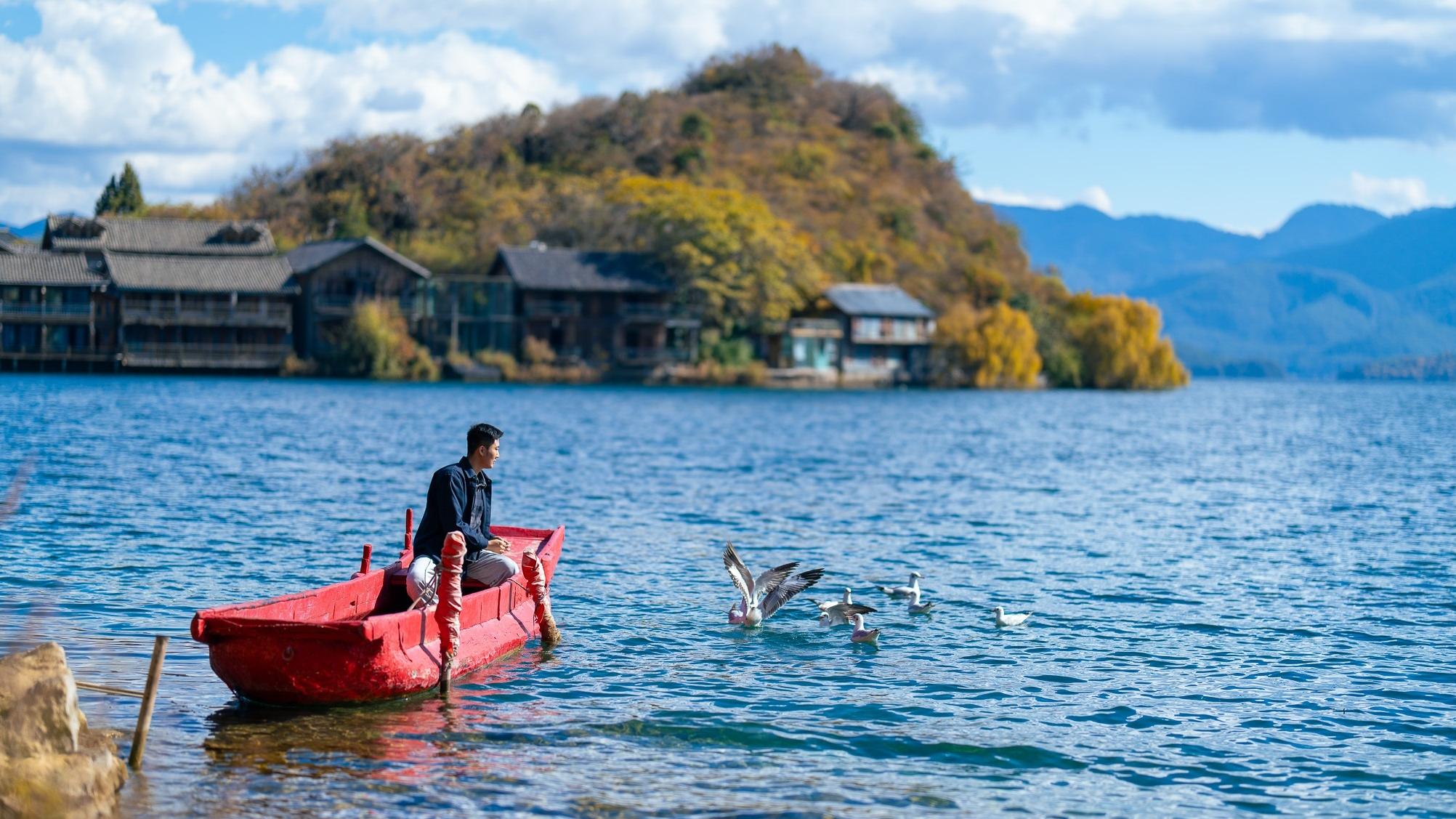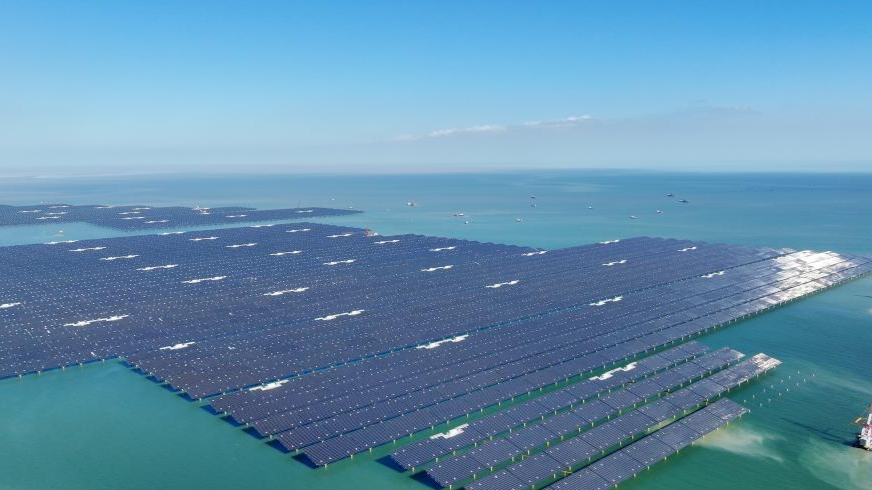Distorted view of history fuels Takaichi's?arrogant remarks on Taiwan
Japanese Prime Minister Sanae Takaichi recently made a brazen, provocative statement on Taiwan at the Japanese Diet. She claimed that a "Taiwan contingency" could be a "survival-threatening situation" for Japan and implied that Japan may invoke the so-called right to collective self-defense to interfere militarily in the Taiwan Strait. Such rhetoric reflects not only strategic recklessness but also a deeply flawed historical perspective.
Inside the Memorial Hall of the Victims in Nanjing Massacre by Japanese Invaders stands a poignant sculpture: a shattered city wall, a broken military sword, a severed head, and an outstretched arm of a person buried alive -- an evocative tableau titled "A City in Calamity." It serves as a stark reminder of the atrocities committed by Japanese militarist forces during the 1930s, including widespread destruction, arson, and mass killings in Nanjing.
Yet today, certain political forces in Japan continue to propagate revisionist narratives of World War II, minimizing or outright denying the atrocities committed against China and other Asian countries. Takaichi is a typical representative of such forces. She has publicly denied the historical facts of the Nanjing Massacre and the forced recruitment of "comfort women." Alarmingly, she has even portrayed Japan's aggression following the September 18th Incident as "self-defense."
Reports indicate that Takaichi has visited the Yasukuni Shrine more than 10 times since 2014. On August 15 this year, the 80th anniversary of Japan's defeat, she once again paid homage there, laying bare her staunch right-wing stance.
Since entering the Diet in 1993, Takaichi has openly advocated for constitutional revisions to expand Japan's military capabilities, including renaming the Self-Defense Forces. Her rhetoric and conduct echo the stance of other right-wing politicians who either dismiss the Nanjing Massacre as a "Chinese fabrication" or label it a "fictional account." Such claims represent a whitewashing of wartime atrocities and a dangerous revival of militarist historical interpretations.
This year marks the 80th anniversary of the Chinese People's War of Resistance Against Japanese Aggression and the World Anti-Fascist War. The painful historical lessons must never be forgotten, and any resurrection of Japanese militarism must be unequivocally opposed.
In Japan today, there are still some politicians who uphold a correct view of history and have the courage to deeply reflect on the history of aggression, earning the respect of the Chinese people. During my tenure as director of the Memorial Hall, I personally received and briefed three former Japanese prime ministers on the historical facts of the massacre.
On May 24, 1998, Tomiichi Murayama became the first former Japanese prime minister to visit the Memorial Hall. He was also the first Japanese prime minister to officially acknowledge and reflect on Japan's wartime aggression. During his visit, he stated, "The atrocities committed by the Japanese military are unbearable to look at. We must soberly recognize that the aggression inflicted unbearable suffering on the Chinese people."
On August 19, 2000, former Japanese Prime Minister Toshiki Kaifu of Japan visited the hall. Deeply struck by the historical evidence and the mass grave known as the "pit of ten thousand corpses", he remarked: "I feel great sorrow. History must never be repeated. The peoples of Japan and China should work hand in hand for peace in Asia."
On January 17, 2013, former Japanese Prime Minister Yukio Hatoyama of Japan visited the Exhibition of the Nanjing Massacre. He inscribed the words "Friendship and Peace," even altering the character in his given name to signify "friendship," reflecting his desire to build trust with the Chinese people.
These acts of reflection and courage shown by these Japanese political leaders stand in stark contrast to the obstinacy of right-wing figures such as Takaichi. History does not disappear through denial or become obscured through revisionism. Preserving historical truth honors the victims and is a fundamental pillar for maintaining peace.
For China-Japan relations to develop in the right direction, Japan must face up to history with courage and a sense of responsibility.
(Zhu Chengshan is former vice president of the Chinese Society of the History of the Chinese War of Aggression Against Japanese Aggression, former curator of the Memorial Hall of the Victims in Nanjing Massacre by Japanese Invaders, and professor at Changzhou University.)
Photos
 Promotion week for intangible cultural heritage brands opens in Dali, China's Yunnan
Promotion week for intangible cultural heritage brands opens in Dali, China's Yunnan First batch of wintering black-headed gulls arrive at Lugu Lake in Yunnan
First batch of wintering black-headed gulls arrive at Lugu Lake in Yunnan Highlights of women's doubles of badminton at National Games
Highlights of women's doubles of badminton at National Games China's Shandong develops green energies to advance new energy structure transformation
China's Shandong develops green energies to advance new energy structure transformation
Related Stories
- China must resolutely hit back at Japanese leader's remarks on Taiwan: Chinese FM
- Reckless path or return to reason: Japan faces choice once again
- Chinese FM urges Japan to reflect on, correct mistakes as soon as possible
- Japan slammed for troublemaking
- Conditions for holding China-Japan-ROK culture ministers' meeting not yet in place: foreign ministry
- China vows firm countermeasures if Japan keeps going down wrong path: foreign ministry
- Japanese PM's remarks seen as bid to court right-wingers
- Infographic: Some individual Japanese politicians need a history lesson
- Japan must face consequences for dangerous provocations on Taiwan question
- China slams Japan's erroneous remarks on Taiwan, urges correction: foreign ministry
Copyright © 2025 People's Daily Online. All Rights Reserved.





